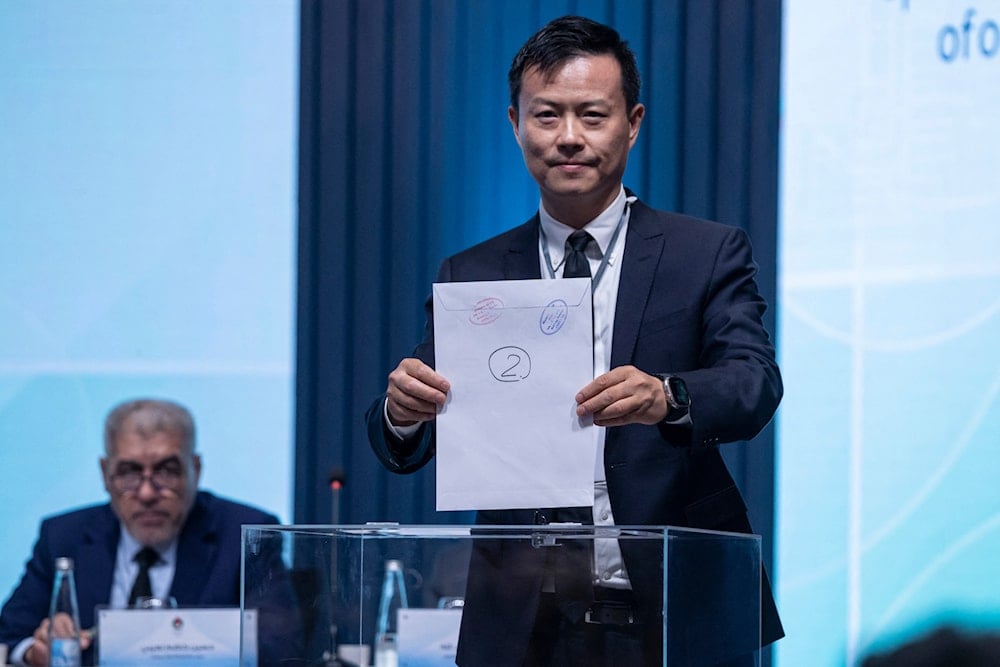Chinese companies dominate Iraq's latest energy bidding round
Chinese companies secure 10 out of the 21 projects auctioned in the weekend.
-

A representative submits his company's offer during the launch of the fifth and sixth licensing rounds for 29 oil and gas fields, at the Oil Ministry headquarters in Baghdad on May 11, 2024. (AFP)
Chinese companies dominated the oil and gas deals in Iraq's energy bidding round launched on Saturday, as the OPEC member aims to bolster reserves and revenue.
A total of 29 oil and gas projects were up for grabs in the latest bidding rounds, spanning three days.
Of the sixteen fields and exploration blocks that were added as an appendix to the fifth bidding round held in 2018, with 11 blocks and fields initially offered, only seven were awarded. The remaining offerings constitute the sixth bidding round. Twenty-two energy companies have been pre-qualified to participate.
Out of the 21 projects auctioned on Saturday and Sunday, Chinese companies secured 10.
Iraqi Prime Minister Mohammad Shia al-Sudani emphasized his country's commitment to ensuring a "safe and stable working environment" while streamlining “complicated routine and bureaucracy."
Al-Sudani mentioned that recent contracts with international oil companies will enable Iraq to stop burning natural gas within three to five years.
Iraqi Oil Minister Hayan Abdel Ghani highlighted that the awarded projects will bolster Iraq's oil and gas reserves. He announced Iraq's impending increase in proven oil reserves to over 160 billion barrels from the current 145.02 billion barrels.
In a related context, the Iraqi Oil Ministry announced on Sunday that it signed a Heads of Agreement (HOA) with an Iraqi-Chinese joint venture to develop an oil field in the Basra province with a capacity of 200,000 barrels per day.
The venture comprises China's Geo-Jade and Iraq's Crescent Basra companies, it confirmed in a statement.
According to the Iraqi Oil Ministry's figures, the country produces slightly over 4 million barrels per day from oilfields controlled by Baghdad, up from nearly 2.4 million barrels per day in 2009, with daily exports averaging 3.6 million barrels per day in March.
Iraq, OPEC's second-largest producer after Saudi Arabia, relies heavily on oil revenue, which constitutes nearly 95% of its budget. In recent years, Baghdad has shifted focus toward developing extensive gas reserves to meet escalating electricity demand, particularly during the summer months.

 2 Min Read
2 Min Read








